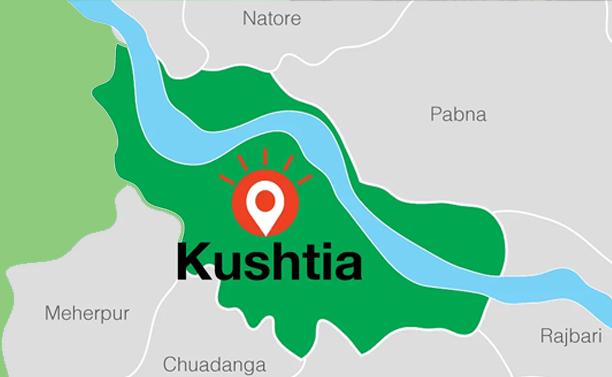
by Jotirmoy Roy
A recent incident of idol vandalism at the Maha Shmashan Kali Temple in Uttar Magura, Kushtia, has once again highlighted the precarious safety of the Hindu minority in Bangladesh. On Thursday evening, local residents apprehended a young man, identified as 24-year-old Ali Nur, while he was destroying idols at the temple. According to authorities, Nur, described as a vagrant, was seen in the temple area for the first time.
A Recurring Pattern of Religious Violence
This is not an isolated incident. Over recent years, attacks on Hindu temples, idols, and community establishments in Bangladesh have become alarmingly frequent. According to Sujan Kumar Adhikari, the general secretary of the Uttar Magura Temple Committee, such an incident has never occurred before, leaving locals deeply concerned.
Root Causes and Social Impacts
Although Bangladesh is often praised as a model of religious coexistence, in reality, recent years have seen a rise in religious violence and fanaticism. Several key factors contribute to this situation:
- Politically Motivated Violence: Religious tensions are often exploited by political groups seeking to consolidate power and fuel intolerance.
- Pakistani and Chinese Influence: Pakistan and China have been accused of leveraging Bangladesh’s internal vulnerabilities to expand their influence in South Asia.
- Pressure on Minorities: There is a growing trend of socio-political and economic marginalization of minority communities.
Pakistan’s Potential Influence
The possibility of Pakistan regaining influence in Bangladesh poses a significant threat to the nation’s progress. While Sheikh Hasina’s leadership has steered Bangladesh towards economic and social advancements, concerns about rising religious tensions being used as a tool for geopolitical maneuvering by Pakistan and China remain.
Recent increases in Islamist extremism in parts of Bangladesh have raised fears about the destabilization of regional peace and its potential to undermine strategic relations with India.
Implications for India and International Response
The attacks on Hindus in Bangladesh have reverberated across the border in India, where concerns over the security of minorities have grown. Any escalation in border tensions could strain the historic ties between the two nations. Newly elected U.S. President Donald Trump has also expressed concern about the persecution of minorities in Bangladesh, highlighting the global implications of such incidents.
Proposed Solutions and Future Directions
- Promoting Religious Tolerance: The government must prioritize fostering religious harmony and coexistence.
- Strict Law Enforcement: Perpetrators of temple attacks must face exemplary punishment to deter future incidents.
- International Collaboration: Bangladesh should work with India, the United States and other international allies to counter Islamist extremism and foreign influence.
- Ensuring Good Governance: Local administrations must be held accountable for safeguarding minority communities and protecting basic human rights.
Conclusion
The incident of idol vandalism in Kushtia is a stark reminder of the deeper challenges facing Bangladesh. Ensuring the safety of minority communities is not just a domestic issue but also a critical factor for regional stability. Addressing religious tensions, countering foreign influences, and fostering international cooperation are essential to securing Bangladesh’s progress and preserving its democratic future.


